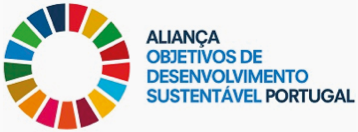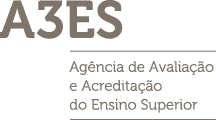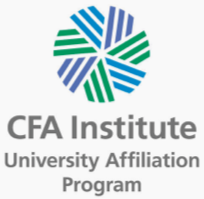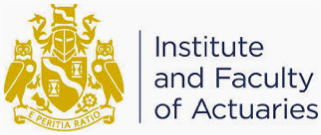
ISEGs Bachelor's degree in Management, one of the first in the country, has an excellent faculty – with professors who hold PhDs from various Portuguese and foreign universities and also visiting professors – who combine scientific and technical skills with market knowledge.
The syllabus of the degree in Management ensures the provision of a solid education for managers' future, with a comprehensive structure based on the core subjects of Management, namely Finance, Marketing, Accounting, Human Resource Management, Production Management, and Information Systems, as as well as areas which are equally key for the teaching of Management, such as Economics, Mathematics, and Social Sciences.
By studying for this degree, you will:
Empowers students with communication, negotiation, and collaborative skills to ensure that they are capable of facing the challenges of working in different types of organizations in their economic and financial life, in both the Portuguese and the international context, with a commitment to ethical development as a distinctive factor of the behavior and professionalism of managers in organizations and in society as a whole;
Provides a solid education in Management through the understanding and application of concepts, theories, and tools to problems and concrete cases in the world of Management;
Develops critical and analytical thinking, integrating interdisciplinary knowledge of complementary areas in the education of the manager (Economics, Mathematics, Sociology, History, and Law) with the object to enable more effective decision-making;
Encourage an entrepreneurial and sustainability-oriented spirit for the exercise of both business and social activities, whilst always ensuring a positive impact on the environment;
Uses active pedagogical models which encourage the link between theory and practice, as well as responsibility, being sustainability oriented, and making a positive impact on society;
Promotes the discussion of ideas and the ability to solve problems as a group, respecting diverse opinions, whilst developing leadership skills, especially with regards conflict management and motivating groups to achieve the objectives.



The Bachelor's degree in Management lasts six semesters. In addition to the compulsory course units, the degree in Management also includes a diverse range of elective subjects in areas such as sustainability, social responsibility, business ethics, big data, digital marketing, social media, and international business. It also facilitates the ability to continue studies at the Masters' level to strengthen knowledge in a specific area of Management (eg, Marketing, Finance, Human Resource Management, Accounting, or Information Systems).
The degree also offers the possibility to enrich your personal skills through complementary training in soft skills. During the 2na Year you will have the opportunity to participate in UpSkill Week, where topics such as Oral and Written Communication, Teamwork, Ethics and Social Responsibility, and Career Planning and Development will be covered. In the 3rd Year, we challenge you to improve your critical thinking during Critical Thinking Week, where we will work together on developing topics such as Systemic Thinking, Sustainable Development Objectives, and also the Project-Action programme, with the objective to put into practice the knowledge acquired during your degree. You will also have the opportunity to participate in challenges through games and simulators which will enable you to apply your knowledge gained from the degree in Management.
| Year 1* | semester |
|---|---|
| Economics I | 1 |
| Mathematics I | 1 |
| Principles of Management | 1 |
| Quantitative Finance | 1 |
| Economic and Business Information | 1 |
| Economics II | 2 |
| Mathematics II | 2 |
| Financial Accounting I | 2 |
| Foundations of Law | 2 |
| Economic and Business History | 2 |
* The 1st Year of Economics is equal to the 1st Year of Management and Finance.
| Year 2 | semester |
|---|---|
| Financial Accounting II | 1 |
| Statistics I | 1 |
| business law | 1 |
| Operational Marketing | 1 |
| Information Technology | 1 |
| Management Accounting | 2 |
| Statistics II | 2 |
| Corporate Finance I | 2 |
| Strategic Marketing | 2 |
| Management Information Systems | 2 |
| Year 3 | semester |
|---|---|
| Corporate Finance II | 1 |
| Operational Research | 1 |
| Sociology of Work | 1 |
| Elective Course Units | 1 |
| Strategic Management | 2 |
| Production and Operations Management | 2 |
| Human Resources Management | 2 |
| Economic Policy and Business Activity | 2 |
| Elective Course Units | 2 |
Minimum application grade: 100 points (out of 200) based on:
Required entry exams:
*Some international qualifications can be automatically recognized as equivalent. Please check with the Undergraduate Office for more information.
| Students from | First Year | second year | third year |
| Within the European Union | € 697 | € 697 | € 697 |
| Outside the European Union | € 4,500 | € 4,500 | € 4,500 |
Financial restrictions should never come in the way of your access to higher education, and that is why we believe in providing equal opportunities for everyone.
If you are not an EU, EEA or Swiss citizen then you will need a Student Visa.
Once you have decided to join the degree and paid the 1st installment of tuition fees to guarantee your place, you can issue the letter of acceptance on the FENIX Portal. This document will be required later on to apply for a Student Visa.
The student visa must be requested at the nearest Embassy or at a Portuguese consular post in the country of origin.
ISEG's Bachelor's in Management prepares its students to be able to respond effectively and efficiently to the demands and challenges of the national and international labor market. The impressive track record of a rapid insertion into active professional life is proof of this. The surveys that recent graduates of ISEG are regularly subject to point to a level of employability of 90% during the 6 months after graduation (with 35% of students already being employed before they even complete their degree). ISEG graduates are employed in the major sectors of economic, financial, and business life, in particular:
The degree also creates the possibility for graduates to continue their education at the 2nd Cycle level, with the objective to strengthen functional specialization (eg, Marketing, Finance, Human Resource Management, Accounting, and Information Systems).













